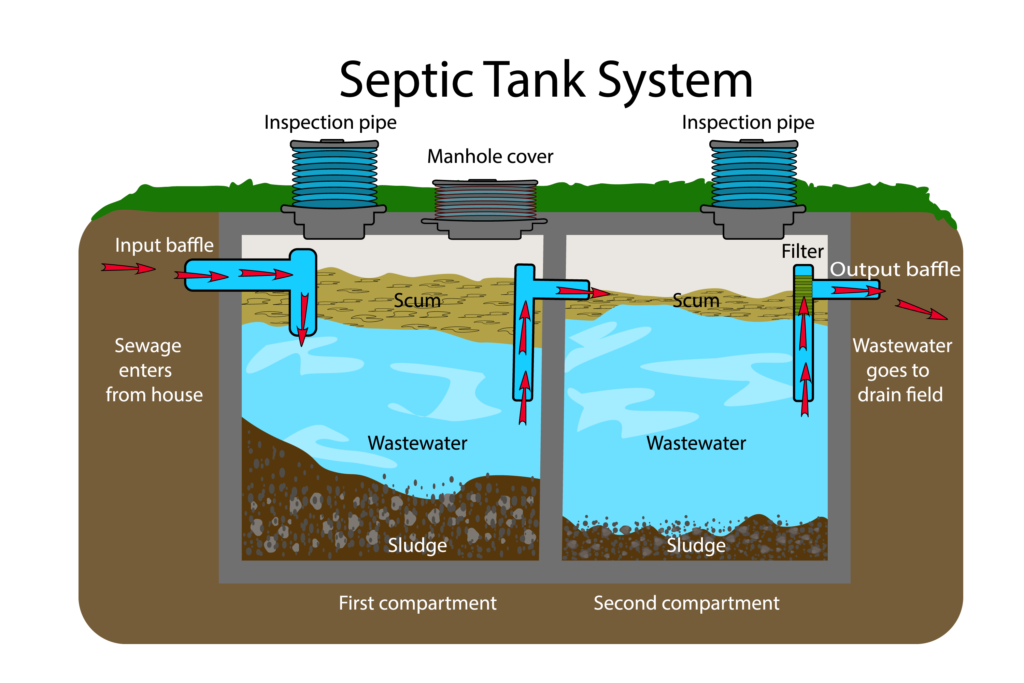The Environmental and Public Health Impacts of Failing Septic Systems
In rural areas of Oregon, failing septic systems quietly pose a significant and often overlooked threat to both the environment and public health. These systems, designed to safely manage  household wastewater, can become sources of pollution and health hazards when they malfunction. The consequences of failing septic systems extend beyond individual households, affecting entire communities and ecosystems.
household wastewater, can become sources of pollution and health hazards when they malfunction. The consequences of failing septic systems extend beyond individual households, affecting entire communities and ecosystems.
Groundwater Contamination: One of the most pressing concerns associated with failing septic systems is groundwater contamination. When a septic system fails, untreated wastewater, including harmful pathogens and chemicals, can infiltrate the soil and leach into the groundwater. This contaminated groundwater can then migrate into nearby wells, potentially exposing residents to waterborne illnesses and toxins.
Surface Water Pollution: Failing septic systems can also contribute to surface water pollution. If a septic system is located near a river, stream, or lake, the discharged effluent can find its way into these water bodies.
Spread of Waterborne Diseases: Pathogens, including bacteria and viruses, present in untreated wastewater can contaminate drinking water sources, posing a severe risk to public health.
Property Value Decline: Failing septic systems can also have economic impacts. Homes with malfunctioning septic systems often experience decreased property values due to the associated health and environmental risks.
Environmental Ecosystem Impact: The ecological consequences of septic system failures extend to local ecosystems. The discharge of excess nutrients into water bodies can disrupt the balance of aquatic life, leading to declines in fish populations and the degradation of sensitive habitats.
 Mitigating the Threat: Recognizing the severity of these issues, Oregon’s Department of Environmental Quality allocated a septic system repair grant to address failing septic systems in rural counties. This funding will support efforts to repair or replace malfunctioning septic systems, reducing the risk of contamination and the associated environmental and public health impacts.
Mitigating the Threat: Recognizing the severity of these issues, Oregon’s Department of Environmental Quality allocated a septic system repair grant to address failing septic systems in rural counties. This funding will support efforts to repair or replace malfunctioning septic systems, reducing the risk of contamination and the associated environmental and public health impacts.
Addressing failing septic systems is not only an environmental imperative but also a crucial public health concern. The collaborative efforts of government agencies, nonprofits, and communities in Oregon demonstrate a commitment to mitigating the environmental and public health impacts of these issues, creating a healthier and more sustainable future for all.

 household wastewater, can become sources of pollution and health hazards when they malfunction. The consequences of failing septic systems extend beyond individual households, affecting entire communities and ecosystems.
household wastewater, can become sources of pollution and health hazards when they malfunction. The consequences of failing septic systems extend beyond individual households, affecting entire communities and ecosystems.









You must be logged in to post a comment.